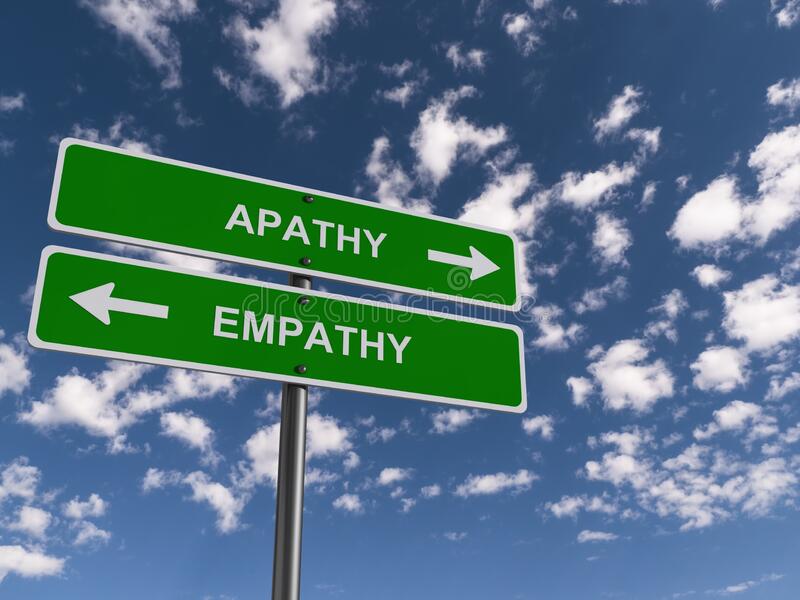The views expressed in our content reflect individual perspectives and do not represent the authoritative views of the Baha'i Faith.
Do you sometimes feel powerless to fix the world’s problems – or even your own? If that sounds familiar, you may be in the grip of apathy, that sad loss of emotion which robs us of joy and hope.
The term comes from the Greek word “pathos,” which means passion or emotion. Inevitably, the world today can make us feel apathetic and powerless – lacking any passion or emotion.
RELATED: Helping Young People Overcome Apathy
What Can I Do If I Feel Apathetic?
Here we are, sometimes thousands of miles away from terrible events taking place, or smack dab in the middle of them, and we begin to believe we have no control – that we cannot affect them even if we wanted to. So, after years of being bombarded this way, we might be tempted to turn off our feelings about the plight of people halfway across the world, or even in our own community or country, throw up our hands, and say, “They’re on their own, I can’t help. There’s nothing I can do.”
The Baha’i teachings say that such feelings defeat our spiritual purpose as human beings. Abdu’l-Baha, in his book The Secret of Divine Civilization, said “… this is man’s uttermost wretchedness: that he should live inert, apathetic, dull, involved only with his own base appetites.”
When apathy grips us, we often feel helpless to affect any change in outcomes. The problems can seem overwhelming – after all, it seems too much goes on every moment in tens of thousands of places, minds, and hearts, for us to even hope to get involved and make a difference. It’s understandable we might feel this way. With our limited resources, limited influence, and limited knowledge, we’re tempted to give up trying to fully understand what’s going on, or even hope to help. So we stop trying, or stop even thinking about it – we retreat to our cocoon and try to feel safe and sheltered from others and their problems.
After all, we have our own problems. Inside, in our core, we ask silently, “Who will help me?” When we can’t easily answer that question, when there’s no close loved one to turn to, or we are without resources like money, a doctor, social programs, support groups, or institutions concerned with our well-being, we become depressed and sometimes don’t realize why. In the process, apathy can even lead us to give up on our own problems and not face them head on because they seem insurmountable.
In this way, we can also become apathetic about the problems of others, especially if we feel powerless.

Apathy as a Mental Illness
Apathy is a killer of progress, a killer of love, a killer of hope, a killer of change. Apathy by definition is the lack of interest, enthusiasm, or concern. It is indifference. Apathy makes you lack motivation to do anything, or just not care about what’s going on around you. Apathy can even be a symptom of depression and other mental health problems, Parkinson’s disease, or Alzheimer’s disease. It can cause a lack of desire to do anything that involves thinking or your emotions.
In his book Some Answered Questions, Abdu’l-Baha compared apathy to the scarcity and privations of winter:
Winter arrives—that is, the chill of ignorance and unawareness envelops the world, and the darkness of wayward and selfish desires prevails. Apathy and defiance ensue, with indolence and folly, baseness and animal qualities, coldness and stone-like torpor, even as in the wintertime when the terrestrial globe is deprived of the influence of the rays of the sun and becomes waste and desolate. Once the realm of minds and thoughts reaches this stage, there remains naught but perpetual death and unending non-existence.
This “coldness and stone-like torpor” describes the conditions of some hearts and minds when they don’t or can’t love themselves or others, when they close off awareness of the talents and abilities within our own selves. When apathy prevails, a state of physical or mental inactivity or lethargy eats away our will. Surely then, “death and unending non-existence,” results, when we fail to act in our own interest and the interests of humanity.
RELATED: How I Try to Break My Unwanted Patterns

How Baha’is Combat Apathy
In a speech he gave in Paris, Abdu’l-Baha advised us all to:
… become just, and direct your thoughts towards the unity of mankind; that you will never harm your neighbours nor speak ill of any one; that you will respect the rights of all men, and be more concerned for the interests of others than for your own.
That prescription prevents apathy, because it turns our minds and hearts to the needs and interests of other human beings, rather than letting us dwell on our own problems and perceptions. When that happens, we find joy in humble service to humanity.
Baha’is don’t let the disease of apathy get to them if they can help it. Nor do we want the world to destroy itself, which widespread apathetic attitudes will inevitably produce. So how do we fight the feelings of apathy the modern world engenders? Baha’is, along with others in each of their communities, are engaged in a global pattern of social activism that shows apathy has no place in human life. In the next essay in this two-part series, we’ll explore one of the Baha’i antidotes to apathy.
















Comments
Sign in or create an account
Continue with Googleor